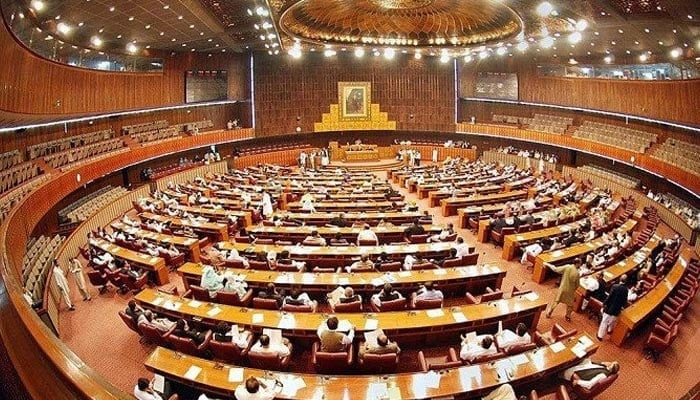Long way to go
However, it should be pointed out that this CPI score and ranking, is already being used in political point-scoring game
The release of Transparency International’s Corruption Perceptions Index (CPI) 2023 shows that Pakistan has improved its ranking from 140 out of 180 countries in 2022 to 133 in 2023. The country’s CPI score rose from 27 out of 100 in 2022 to 29 for the previous year, with ‘0’ being highly corrupt and ‘100’ very clean, reflecting modest progress when it comes to dealing with corruption. The Transparency International Pakistan (TIP) chief has termed the improvement encouraging and claims it is the result of anti-corruption efforts taken by different pillars of the state. The TIP chief has also called on governments to give the justice system the independence, transparency and resources they need to punish corruption and, where necessary, introduce better procedures and laws to help justice institutions shield themselves from and target corrupt acts. However, it should be pointed out that this CPI score and ranking, already being used in the political point-scoring game, still leave Pakistan among the countries with the highest corruption perceptions in the world. There is not much to brag about here for any party, even though this is the first time Pakistan’s corruption perception has improved since 2018. The most important question is what needs to be done to continue this trend over the long term and to avoid a relapse as has happened previously.
Overall, the CPI 2023 shows that most countries have made little-to-no progress or have declined when it comes to eliminating corruption. According to Transparency International, there is increasing impunity for corruption, with weakening justice systems reducing accountability for public officials, enabling corruption to thrive. The organization further claims that, worryingly, both authoritarian and democratic leaders are undermining justice, and points to the trend of countries that have a deceptively high CPI score as their companies are involved in corruption abroad in, for the most part, poorer countries with lower CPI scores. The companies and individuals from rich countries who use the Global South to launder their corruption rarely face consequences. In fact, if anything can be drawn from the CPI map showing the correlation between poverty and corruption it is that corruption is thriving in a highly unequal world.
Rich companies will tend to find a fertile market for bribery and other criminal acts in cash-hungry poorer countries. The unequal nature of the global economic system makes it all too easy for companies from the developed world to abuse their financial clout and avoid the stricter regulations they would face in their home countries in the Global South. As such, reducing corruption globally would seem to call for a path to economic development for countries like Pakistan that is not so heavily dependent on investment from foreign corporate behemoths. In a similar vein, part of the reason corruption still thrives in Pakistan is that many of its victims lack the resources needed to get justice. Simply reporting and filing a bribery case would be beyond most Pakistani households who are struggling to pay for food and electricity. An environment where justice is beyond the reach of most will be an environment where injustice thrives. Hence, making the judicial system more accessible and less costly for ordinary Pakistanis will be key to winning the battle against corruption.
-
 Royal Family's Approach To Deal With Andrew Finally Revealed
Royal Family's Approach To Deal With Andrew Finally Revealed -
 Super Bowl Weekend Deals Blow To 'Melania' Documentary's Box Office
Super Bowl Weekend Deals Blow To 'Melania' Documentary's Box Office -
 Meghan Markle Shares Glitzy Clips From Fifteen Percent Pledge Gala
Meghan Markle Shares Glitzy Clips From Fifteen Percent Pledge Gala -
 Melissa Jon Hart Explains Rare Reason Behind Not Revisting Old Roles
Melissa Jon Hart Explains Rare Reason Behind Not Revisting Old Roles -
 Meghan Markle Eyeing On ‘Queen’ As Ultimate Goal
Meghan Markle Eyeing On ‘Queen’ As Ultimate Goal -
 Japan Elects Takaichi As First Woman Prime Minister After Sweeping Vote
Japan Elects Takaichi As First Woman Prime Minister After Sweeping Vote -
 Kate Middleton Insists She Would Never Undermine Queen Camilla
Kate Middleton Insists She Would Never Undermine Queen Camilla -
 King Charles 'terrified' Andrew's Scandal Will End His Reign
King Charles 'terrified' Andrew's Scandal Will End His Reign -
 Winter Olympics 2026: Lindsey Vonn’s Olympic Comeback Ends In Devastating Downhill Crash
Winter Olympics 2026: Lindsey Vonn’s Olympic Comeback Ends In Devastating Downhill Crash -
 Adrien Brody Opens Up About His Football Fandom Amid '2026 Super Bowl'
Adrien Brody Opens Up About His Football Fandom Amid '2026 Super Bowl' -
 Barbra Streisand's Obsession With Cloning Revealed
Barbra Streisand's Obsession With Cloning Revealed -
 What Did Olivia Colman Tell Her Husband About Her Gender?
What Did Olivia Colman Tell Her Husband About Her Gender? -
 'We Were Deceived': Noam Chomsky's Wife Regrets Epstein Association
'We Were Deceived': Noam Chomsky's Wife Regrets Epstein Association -
 Patriots' WAGs Slam Cardi B Amid Plans For Super Bowl Party: She Is 'attention-seeker'
Patriots' WAGs Slam Cardi B Amid Plans For Super Bowl Party: She Is 'attention-seeker' -
 Martha Stewart On Surviving Rigorous Times Amid Upcoming Memoir Release
Martha Stewart On Surviving Rigorous Times Amid Upcoming Memoir Release -
 Prince Harry Seen As Crucial To Monarchy’s Future Amid Andrew, Fergie Scandal
Prince Harry Seen As Crucial To Monarchy’s Future Amid Andrew, Fergie Scandal




